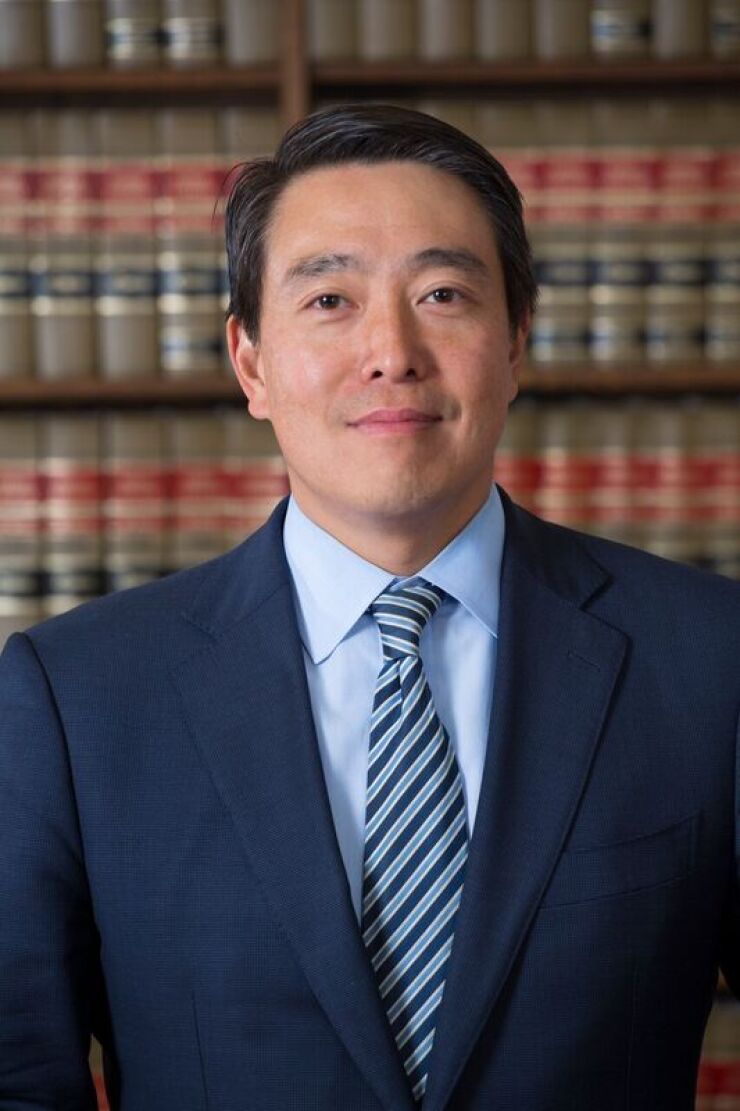WASHINGTON – Deborah Kelley, a former broker, will pay roughly $188,000 as part of a larger, yet-to-be determined sentence after pleading guilty to participating in a pay-to-play scheme that steered billions of dollars of business from a New York pension fund to certain firms in exchange for gifts and vacations.
Kelley pled guilty late last month to one count of conspiracy to commit securities fraud and honest services wire fraud before Judge J. Paul Oetken, who sits on the U.S. District Court for the Southern District of New York in Manhattan. The count carries a maximum sentence of five years in prison and three years of supervised release, according to the U.S. Attorney’s Office for the Southern District of New York, which is handling the case. Full sentencing is expected to take place in September.
The $188,000 that Kelley will have to pay as part of her sentence is meant to represent the amount of money she acquired by engaging in the conspiracy, according to a consent preliminary order of forfeiture/money judgment recently filed in New York district court. Kelley consented to the amount as part of her guilty plea, according to the order. Her lawyer could not be reached for comment.
Joon Kim, the acting U.S. Attorney for the Southern District of New York, noted at the time of Kelley’s plea that Kelley admitted to “reaping hundreds of thousands of dollars in additional commissions” for her firm through the scheme that involved the New York State Common Retirement Fund. Kim added that the “hard-earned retirement savings of New Yorkers should not be a vehicle for corrupt pension administrators and securities brokers to profit.”

Her guilty plea was made in a criminal case but she, along with broker Gregg Schonhorn and the former director of fixed income for the NYSCRF Navnoor Kang, are still facing civil charges from the Securities and Exchange Commission in a separate case. Schonhorn pled guilty last year and was not named in the criminal indictment against Kelley and Kang. The criminal case against Kang is still pending in the federal court in New York.
Neither the Department of Justice nor the SEC listed the firms involved in the pay-to-play scheme, but Financial Industry Regulatory Authority documents show Kelley worked at Birmingham, Ala.-based Sterne, Agee & Leach Inc., and St. Louis-based Stifel Nicolaus & Co. during the period of time covered in the cases.
U.S. attorney’s said the pay-to-play scheme took place between January 2014 and February 2016 while Kang was responsible for investing more than $53 billion in fixed-income securities on behalf of the NYSCRF. Kang owed a fiduciary duty to the NYSCRF and its members and beneficiaries and was prohibited by New York State law and NYSCRF policies from receiving any bribes, gifts, benefits, or consideration of any kind, according to the U.S. attorneys.
Kelley, despite knowing those prohibitions, bribed Kang with entertainment, travel, and lavish meals, during the course of the scheme, they said. The SEC found that Kelley took Kang and his girlfriend on a vacation to New Orleans in October 2014. During the trip, she paid $8,000 for meals, drinks, and entertainment, including $6,000 for VIP tickets to a Paul McCartney concert. She later took Kang, his girlfriend, and several other people on a ski trip to Park City, Utah. She spent more than $11,000 for limousine services, skiing, hotel rooms, dinners, and drinks on that trip, according to the SEC. The commission also found that she charged both trips to her firm without listing Kang’s name and instead listing clients from a private firm.
In return, Kang steered fixed-income business to Kelley’s firm, U.S. attorney’s said. The DOJ found that the value of NYSCRF’s domestic bond transactions with Kelley’s firm increased from zero in the fiscal year ending in March 2014 to $156 million and $179 million, respectively, in the fiscal years ending in March 2015 and 2016. Kelley’s firm received “hundreds of thousands of dollars in commissions” because of the trades and Kelley personally earned about 35% to 40% of those commissions, the department found.
The U.S. attorney’s also said that Kelley and Kang falsely testified under oath before the SEC about the expenses Kelley had paid for Kang when the commission subpoenaed the two as part of an investigation into the benefits Kang received.





